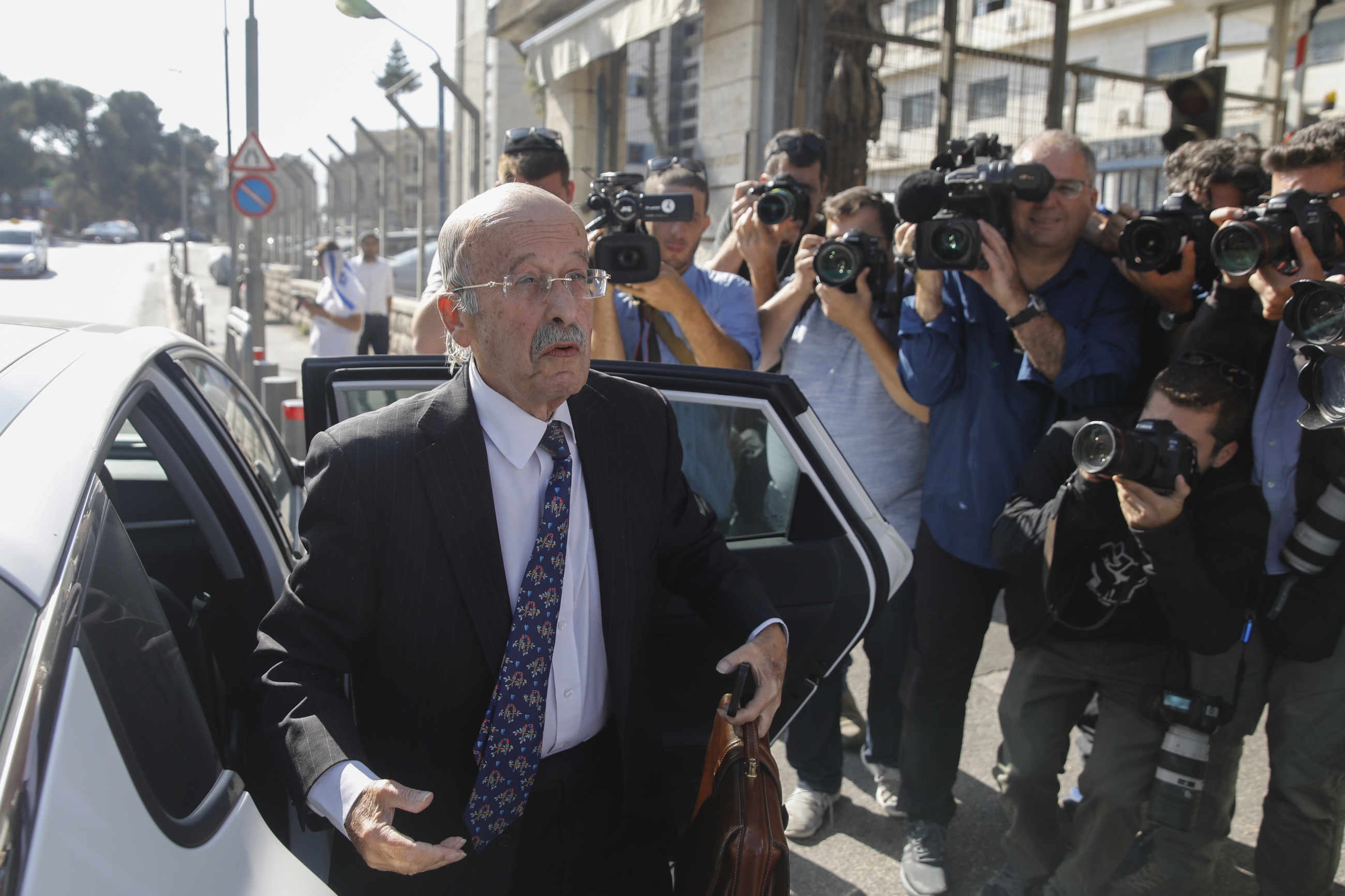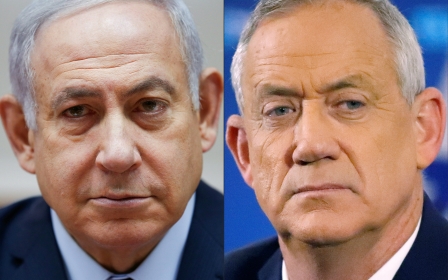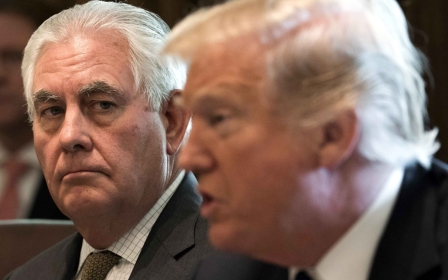Corruption hearing into Israeli Prime Minister Benjamin Netanyahu begins

Israeli Prime Minister Benjamin Netanyahu is facing a pre-trial corruption hearing as attempts falter to build a governing coalition crucial to his political survival.
The leader of the right-wing Likud party is facing a series of pre-trial hearings on potential charges of fraud, breach of trust and bribery in three cases that involve gifts he allegedly had received and favours promised in exchange for positive media coverage.
Netanyahu's corruption cases
+ Show - HideIsraeli Prime Minister Benjamin Netanyahu is facing potential charges in three cases focused on corruption, known by their codes 4000, 1000 and 2000.
Case 4000: Netanyahu accused of granted regulatory favours to Israel's leading telecommunications company, Bezeq Telecom Israel, in return for positive coverage of him and his wife Sara on a news website controlled by the company's former chairman.
Case 1000: Netanyahu and his wife allegedly wrongfully received gifts from Israeli filmmaker Arnon Milchan and Australian billionaire businessman James Packer, including champagne and cigars.
Case 2000: Netanyahu suspected of negotiating a deal with the owner of Israel's best-selling daily newspaper, Yedioth Ahronoth, for better coverage in return for legislation that would slow the growth of a rival daily newspaper.
Though Netanyahu is not expected to attend the series of hearings over the next week himself, they grant his legal team a chance to argue against the prospective charges and to convince the attorney-general to either scrap them or to reduce them.
After hearing the arguments, the attorney-general is expected to decide by the end of December whether to indict Netanyahu.
If he is still in office as prime minister, Netanyahu would be under no strict legal obligation to quit. According to Israeli law, a prime minister must step down if ultimately convicted, but can stay in office throughout legal proceedings including appeals.
New MEE newsletter: Jerusalem Dispatch
Sign up to get the latest insights and analysis on Israel-Palestine, alongside Turkey Unpacked and other MEE newsletters
Netanyahu's supporters in the legislature have suggested they would support granting him parliamentary immunity from prosecution, but it is unclear whether there are enough lawmakers who would back such a move.
A poll conducted by the Guttman Center at the Israel Democracy Institute found on Wednesday that 52 percent of Israelis did not think that Netanyahu should be offered a plea bargain by which he would admit to charges against him and then retire from public life without standing trial.
Building a coalition
Netanyahu was last week handed the opportunity to build Israel's next coalition government after no party emerged with a strong enough majority during September's election.
He is expected to seek support from right-wing allies to prevent the talks collapsing altogether on Wednesday, adding to the day's challenges which were described by the Times of Israel as like "twin swords of Damocles".
Netanyahu's allies reportedly support proposed legislation that could protect the prime minister and other members of parliament from prosecution, but his coalition falls short of a governing majority, which could force Israel towards a third election.
Netanyahu's hearing is to last four days, covering three separate cases in which he is accused of acting on behalf of wealthy supporters and businessmen in exchange for gifts or favourable news coverage.
The prime minister, who denies all the allegations, asked that the hearing be broadcast live because he has "nothing to hide."
Attorney General Avichai Mandelblit dismissed the request in no uncertain terms, saying the hearing was intended to convince the legal authorities, not the public.
Following the hearing, the attorney general's deliberations on whether to issue the indictments are expected to continue for weeks.
His lawyers expressed confidence as they entered the hearing.
"The prime minister is not above the law, but neither is he below it," said Netanyahu lawyer Ram Caspi.
Middle East Eye delivers independent and unrivalled coverage and analysis of the Middle East, North Africa and beyond. To learn more about republishing this content and the associated fees, please fill out this form. More about MEE can be found here.




